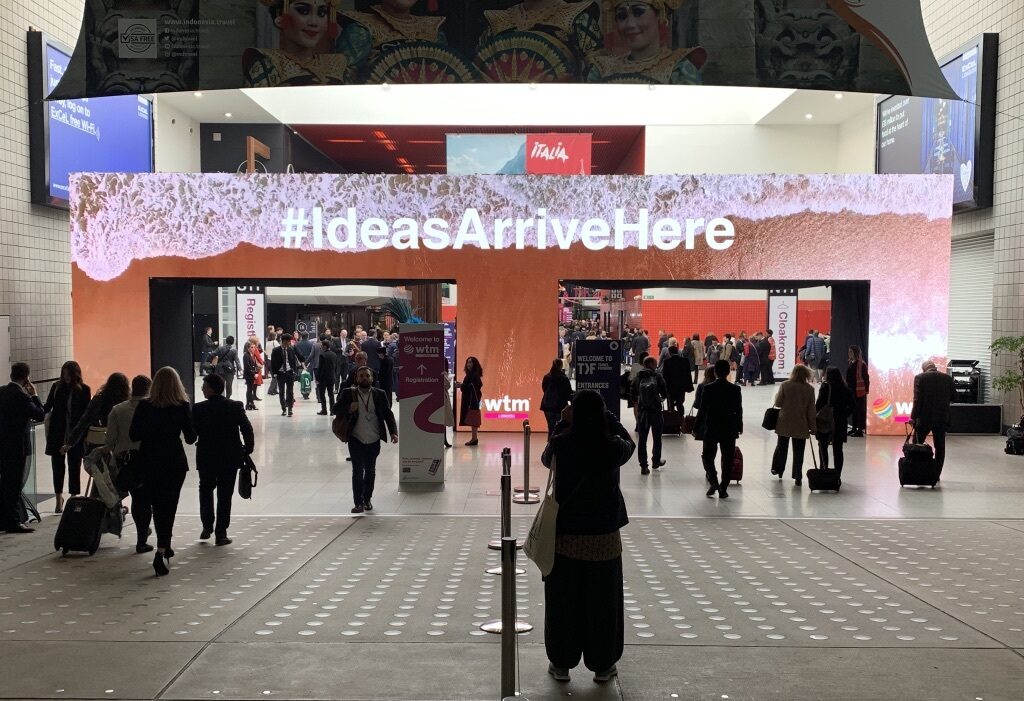Exhibitions, conferences, and any other type of event, have traditionally been an extremely profitable activity for both participants and organisers. Learn how COVID-19 affected the events industry, and how can participants adapt to the new conditions of digital events.
6 mins readFrom the postponement of the Tokyo Olympics to the cancellation of the Cannes Film Festival, the pandemic in 2020 has caused an intense socio-economic and geopolitical upheaval internationally, on the business map. The event industry was hit hard by the pandemic, as the gathering of many people in one place was forbidden. Thus, the measures of social distancing and safety were directly applied in all kinds of events, social and business ones. That affected all parties involved. The result of the fast and at the same time efficient conversion of events in a digital environment was constructive. Hybrid conferences, online conferences, virtual exhibitions, webinars, but also their updated version, webinars+, have appeared since the spring of 2020. For many organisers, these new forms of events have come to stay, as the benefits they offer to those involved, cannot be ignored.
What does a digital event have to offer, in order to stand out from the competition?

The triptych “Networking, Business Opportunities, and Innovation” has given its way to “Content, Networking, and Communication“. The “key” towards success for all kinds of online events lies upon the multidimensional content, the opportunities for professional networking, and the wide range of communication support. But let us see in detail, all the data that can be extracted by each online event.
It is a fact, that the composition of a professional event is the pole of attraction, for any participant. The variety in the topics presented, but also the way of displaying them attracts participants especially when attendance requires a financial price. The design also plays an important role in those events. Images, videos, and graphic design help to better understand the concept of presentations, while quizzes, polls, panel discussions, and real-time audience questions, can enhance screen interaction. It is also important to offer alternative methods of participation in a digital event, in order to increase the attendance of the audience.
An additional element that can make a difference in digital events, is the creation and application of well-designed formats in the “digital material” of the event. For example, organisers can create a specific presentation template, and speaker badges, with the event logo embedded, which will be used by all speakers. Thus, there will be homogeneity and coherence in the appearance of all the presentations. Moreover, each participant’s photo will include the logo of the event, making it widely recognisable. Indeed, this simple twist in organising events offers excellent opportunities to promote the event in a wider audience, at zero cost.
Networking plays the most important role in the digital age of events!

Any event that that is part of the “meeting” world, must include networking opportunities for participants. Traditional networking takes new forms in the digital environment, turning listeners into active participants.
Now in these new types of events, the participant is encouraged to take a more active role by contributing with knowledge, ideas, and questions to everyone. This development was significantly enhanced by the wide use of mobile devices and the plethora of related applications, which allow participants to customise their monitoring experience according to their preferences.
The new trend of gamification, i.e. the integration of “game mechanisms” in a digital corporate environment, adds an interesting character to these events. More specifically, there are events where both the speaker and the participants could create avatars, which replaced the physical presence and have the ability to communicate with each other. Another significant development towards the digital presentation of the events is the integration of “smart badges” and digital business cards for all the participants.
The new era of exhibitions and events requires new methods of Communication and Brand Awareness.

The promotion of digital events is essential at every stage of their conduct, starting from the organisation until after their completion.
The communication strategy of digital events is simple: the organisation of online events must apply innovative methods of promotion. So, it is very important to create an attractive and easy-to-browse website dedicated exclusively to the event. All the information regarding registration and participation should be included on the website. It is also useful to have extensive information material of wider interest available (e.g. trends on a topic related to the organisation, industry research, etc.). At the same time, Social Media play a significant role in the communication strategy of the event, with emphasis on the coherence of the messages conveyed. The texts or news related to the event should be presented uniformly and in each medium, at the same time. By the same token, the organisation of the event can be broadcasted simultaneously on all media and communication partners of the event.
An interesting aspect of communication in digital events is the possibilities that technology offers to the organisers for the supervision of participants and the collection of valuable data. Recent experience has shown that the measurement of the duration of a participant’s connection in a session, can lead the organiser to significant conclusions. Through this practice, and by analysing the impact of certain topics on the audience, organisers can choose the topics of their following digital events, webinars, or other organisations. In fact, the high-proof popularity of an event can be a catalyst in attracting sponsors or advertisers, thus ensuring the necessary financial resources of the organizer.
Major tourism and hospitality events took place in a digital environment

Major tourism and hospitality events have followed the trend of digitalisation, in order to meet the requirements of this new era. Typical examples are the World Travel Market which was organised virtually and promoted the motto “Recover. Rebuild. Innovate” giving a clear position of redefinition. Also, ITB Berlin has already announced that in 2021, the appointment with its followers will be given online, stating that it will offer them an online platform for networking, business action, and content. Another international conference with great dynamics, the FVW Congress was held from August 31 to September 3, 2020, online, with great success, enabling participants, in addition, to live streaming to watch the sessions in their own convenience, through recorded videos.
A number of other events, such as the ACTA 2020 Travel Industry Summit, the 2020 Virtual Travel And Leisure Show in Canada, and the Ireland Virtual Expo, follow the era of digitalisation era and create their virtual environment for 2020 and 2021.
Conclusion
It is understood that digital events should be considered as a rather new reality, that can be developed into an excellent business opportunity. New technologies offer valuable help to organisers and participants and give them access to new knowledge and new markets.






